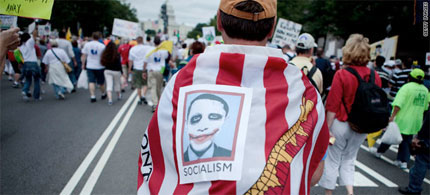Racism Linked to Bad Health
Study Links Discrimination, Blacks’ Health (WaPo, A17)
Poor health linked to subtle racism? (Seattle Times reprint)
When Sandi Stokes waits for lunch at the sandwich shop near her office in downtown Washington, she notices the counter worker often assumes the white person next to her was there first. Brenda Person frequently finds that when she goes shopping near her home in Silver Spring, clerks seem to ignore her and instead help a white customer. Peggy Geigher, a District resident, says restaurant hostesses often seem to seat her near the bathroom, even when better tables are available. Many African Americans tell stories such as these — seemingly minor examples of subtle discrimination they experience routinely. “It happens all the time,” said Person, 56, a mother of two daughters. “It’s part of day-to-day experiences, unfortunately. But you are never prepared for it — it makes you feel like you’re out of rhythm with the rest of the world, and like there’s no justice.”
Some medical researchers have begun to suspect that such incidents take a physical toll as well and may play a role in why black people tend to have much poorer health than white people. Over time, chronic, low-level stress from such incidents may increase the risk for a host of ills, including heart disease and cancer, according to the theory.
The hypothesis remains far from proven and is highly controversial. Skeptics say it is very difficult to rule out other factors, such as diet, lifestyle, personal perceptions and cultural differences. But support for the theory has been slowly accumulating in recent years, including a new study released yesterday linking such experiences to the early stages of heart disease. Some researchers say it is among the strongest pieces of evidence so far. “Exposure to this kind of discrimination has real health implications for African Americans,” said Tene T. Lewis, a health psychologist at Rush University Medical Center in Chicago who presented the findings at an American Heart Association meeting in Washington. “We need to figure out how it’s happening and why it’s happening and how we can prevent it from happening.”
Health experts have known for decades that blacks and other racial minorities are at far greater risk than whites for many health problems, tend to suffer more complications when they get sick and are less likely to recover. Most of the differences can be explained because blacks tend to be poorer and have less access to high-quality health care, experts say. But even when socioeconomic factors such as income and education are accounted for, blacks still tend to fare worse, leading some to suspect that stress from insidious, persistent discrimination may play a role.
Studies have linked discrimination to higher rates of depression, and a small number have found associations with risk factors for physical disease, such as high blood pressure. The new study is the largest, most detailed to date to examine the relationship between discrimination and the early stages of a physical ailment.
The study was small and certainly less than conclusive. Still, it’s not inconceivable to me that small stresses would add up to cause health problems. If Type A personalities are at a greater risk because they’re more aggravated by such everyday aggravations as traffic, it seems reasonable that a sense of being discriminated against would have a similar consequence.





I suspect not. If that were the case, women would have a shorter life span then men.
Or maybe it’s the constant paranoid complaining? Who knows.